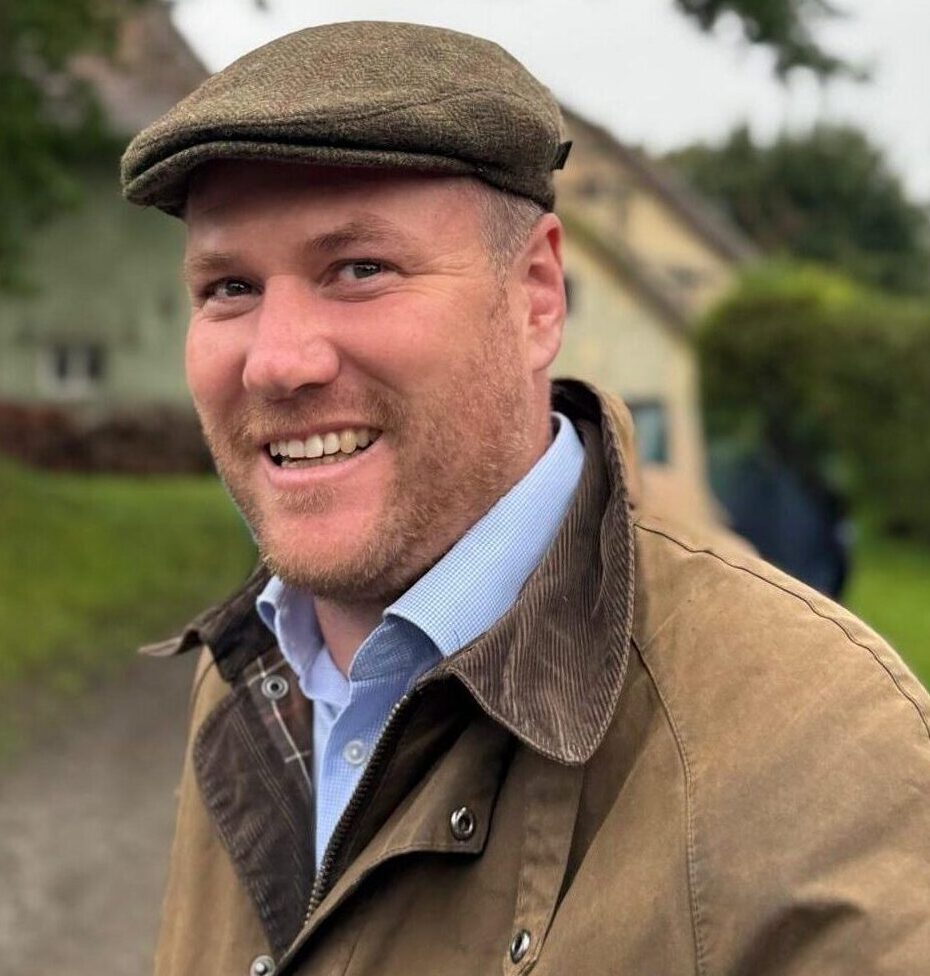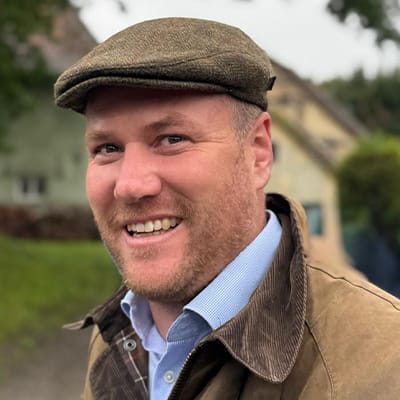In Conversation with Dr. Ulrich Bucher, Cattle farmer, agricultural engineer and Bodenpraktiker participant, Sigmaringen
When Dr. Ulrich Bucher speaks about soil, he speaks with conviction. Farming part-time in the district of Sigmaringen, he manages around 5.4 hectares of grassland, with one hectare of arable land to be added next year. His main focus is cattle, including breeding. With a PhD in agricultural engineering from Hohenheim University, he has long been in dialogue with fellow farmers and thinkers who, like him, are searching for alternatives to conventional methods.

“Soil is what matters most, yet we don’t protect it enough. Too often, mistakes are still made simply out of lack of knowledge.”
Dr. Jan-Gisbert Schultze, Gründer & Co-Geschäftsführer

Why he joined the Soil Practitioner course
For Bucher, the decision to take part was sparked by both curiosity and a challenge on his own farm. “I had a field that yielded less than others despite being managed the same way. I wanted to understand why,” he explains. At the same time, conversations with fellow farmers reinforced his belief that there must be other ways forward. “In my conventional studies, we learned far too little about soil. The Soil Practitioner course was the perfect opportunity to expand my knowledge.
Why soil matters more than ever
Extreme weather events are a constant reminder that soils must be better understood and cared for. Bucher points to agroforestry systems, perennial crops, and water cycles as key elements of resilience. But it also requires a shift in mindset: “You need openness. I have to look critically at my crop rotation, maybe leave the path I’ve taken, use different techniques. That requires both mental and financial readiness.
Key takeaways from the course
One highlight for Bucher was visiting soil profiles on different farms across Baden-Württemberg. “Seeing the diversity of soils was fascinating. And the exchange with practitioners was always valuable.” He was also impressed by the lecturers: “The quality is excellent. Some, like Hans Unterfrauner, are challenging to follow — but their insights really make you rethink things.
His main realization: there is no single solution. “Everyone has to find their own way, take ideas here and there, and adapt them to their context.
Why he recommends it to others
If a colleague is open to new ideas, the course is an absolute must,” he says. The limits of agricultural chemistry are becoming clearer to him: pesticide approvals are dwindling, soils are becoming depleted, and conventional farming faces growing challenges. “Regenerative agriculture offers something for everyone. The Soil Practitioner can be an easy entry point, even for conventional farmers. You don’t have to switch to organic — you can simply start by experimenting with individual practices.
How it’s changed his farm
The course has encouraged Bucher to rethink aspects of his own management. He plans to reduce reliance on heavy contractor machinery, start experimenting with cut & carry composting, and pay closer attention to supporting earthworms through the winter. “It has really changed how I think about the future of my farm,” he reflects.
For him, the diversity of participants is another strength of the programme: “The different backgrounds create conversations you wouldn’t otherwise have. And every farm visit adds a new layer of learning.
